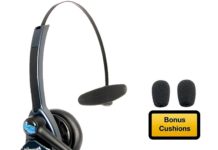Whether you drive a truck for business or pleasure, cutting your costs will revolve around two key areas. One being the maintenance of your car and the other seeing how fuel efficient you are. These two factors are often intertwined and here we explore how you can use them both to pay less at the pump.
Vehicle Maintenance
There are simple routine checks and maintenance tasks you can carry out on your vehicle which will help it perform at peak fuel efficiency.
Tires: Check they are at the recommended psi, as if they have dropped in pressure not only will this lead to lower fuel efficiency but it will also cause the tyres to wear, calling for them to be replaced more often. Under or over inflated tyres can also be a safety risk and accidents lead to higher insurance premiums, thereby increasing your costs.
Oil and Air: If your engine is working unnecessarily hard it will not be fuel efficient. Therefore, change the oil and check the oil and air filters regularly. As your vehicle ages, you may also improve its performance by using synthetic oil which aids lubrication.
Lessen Drag
You want your truck to be as aerodynamic as possible to cut down on drag and thereby improve fuel efficiency. Three key areas to consider here are:
1. Any load should be positioned as low and as close to the cab as possible.
2. If you don’t have a tailgate cover, install one to lessen drag.
3. Unnecessary items, such as bully bars and headache racks, should be removed as they are adding weight and therefore increasing drag.
Consider How You Drive
Probably the biggest change you can make on a daily basis is in how you drive. First, you should plan your route, taking into consideration: road conditions; topography; weather; and local traffic reports. A topographical sat nav can help to plan the most efficient, cost effective route.
If you need to warm your truck up on cold days, do so slowly. If you rev your engine you are putting extra strain on it and burning more fuel than necessary. Apart from this warm up period however, don’t idle your engine at other times you are stationary as this can use up to 2 litres of fuel per hour.
Safety is all important, as we discussed earlier when it came to insurance premiums. Learning defensive driving techniques can help with this as well as making you more fuel efficient. Looking ahead for changing road conditions and other road user’s behaviour can lead to less harsh braking and you can move through the gears fewer times and therefore more smoothly.
Speed is another big issue when it comes to safety, fuel efficiency and cost. Dropping your speed even a nominal amount, from 56mph to 50mph, can make you up to 22% more fuel efficient, depending on the size of your vehicle. In addition, driving more slowly protects you from incurring any speeding penalties, which naturally saves you money but could also protect your livelihood if you drive a truck for work.
If you want to get serious about changing your driving habits so you become more fuel efficient, you should consider installing an MPG meter and a fuel mizer in your truck. The first will let you know how many miles you are getting to the litre and whether this is improving as you change your habits. A fuel mizer is pre-set with behaviours you want to enforce in your driving and will remind you if you are straying away from these. Maybe this seems like a step too far, but when cost efficiency is your main objective every step you implement adds up to more money in the bank and less spent at the garage.







